
IT IS far easier to think about heating and lighting when your birdroom or aviary is at the planning stage than it is to think about anything to do with electrics after the room is built. At the outset, you should be considering what you need, how it will be fitted and the wiring that will be required to supply each and every electrical product.
Think especially about the supply of the electricity to the birdroom itself. At all times, it is vital to consider safety and to be ready to consult experts at every stage. My father was an electrician and his key words were always: “Leave electrics to those who know what they are doing.” If we need any evidence in favour of bringing in the specialists, we only have to think of some of the serious birdroom fires we have heard about in recent years – all of which were put down to electrical faults.
One thing it is NOT safe to consider is to run power to the birdroom simply via an extension lead clipped to the fence going down the garden. Specialist cable needs to be buried well under the ground and connected to the house at one end and the birdroom at the other. The advice from the experts will always be to ensure it’s connected to a separate, fused box at the birdroom end. Then if anything goes wrong in the birdroom, it will knock out the fuse and the current gets killed. Be ready to take advice from the experts all the time – and even if you feel brave enough to undertake the wiring yourself, get it checked and connected by professionals – and not just someone who claims to know a bit about electrics, even if it’s a bit more than you!
This story is from the November 13, 2019 edition of Cage & Aviary Birds.
Start your 7-day Magzter GOLD free trial to access thousands of curated premium stories, and 9,000+ magazines and newspapers.
Already a subscriber ? Sign In
This story is from the November 13, 2019 edition of Cage & Aviary Birds.
Start your 7-day Magzter GOLD free trial to access thousands of curated premium stories, and 9,000+ magazines and newspapers.
Already a subscriber? Sign In
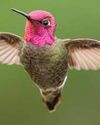
The World's Best-Known Hummingbird?
Intensively studied, the gem-like Anna’s hummingbird is a welcome visitor to the gardens of America’s most populous state: California. Bill Naylor investigates its life history
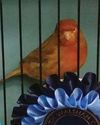
The charm of the English Cinnamon
Despite its long and complicated history, the true Cinnamon canary is still with us – in the hands of a tiny group of breeders. DONALD SKINNER-REID reckons it deserves wider appreciation
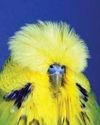
Spangles: a personal overview
FRED WRIGHT relates a budgie story of over-exploitation, consequent problems and abundant potential for the future

New converts to old breeds
Old and rare canaries have a reputation for adding fresh interest and challenge to the hobby. PETE HOOK and NICK JOY agree, and explain the birds’ charm to Dave Brown
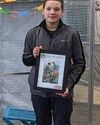
Themed aviaries are a hit with the public at annual Stafford show
DECORATIVE AVIARY DISPLAYS from a CBS and an online bird keeping advice group were voted in the top three by visitors for the inaugural Stafford Aviary Competition.
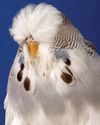
Pieds with potential
More than just a lesser variety, the dominant pied will introduce challenge and change into most studs, reckons CLIVE WAKEMAN. Here he discusses pairings to try and others to avoid
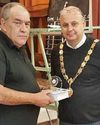
Club News
Welcome to the club and show pages – the bit that’s all about you Results: convention, specialist & rare and Breeder of the Year
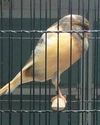
Canaries Month by Month:
With Christmas around the corner, BRIAN KEENAN is well into his winter programme, and reckons he might deserve a nice outcross
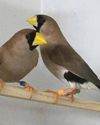
Smart Choice, Docile Nature
Dave Brown welcomes the masked grassfinch to his birdroom and shares advice on this lovely Australian species
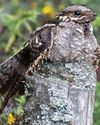
The truth about the ‘flying toad'
Odd local names and weird superstitions can’t hide the beauty and elegance of the nightjar, a species that has made a fascinating subject in a few zoo collections, reveals BILL NAYLOR